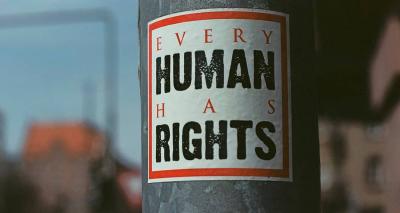Abortion Debate

Photo by Markus Spiske / Unsplash License
The twenty-first-century debates about abortion and the legal maneuvering by various groups illustrate one of the failures of the more than 200-year-old U.S. Constitution to meet the needs of Americans. Texas law S. B. 8 and litigation surrounding it consume most of the current debate. However, the battle between pro- and anti-abortion advocates will continue until flaws in the Constitution are addressed. A close examination of a 2021 Supreme Court ruling provides a window into one problem with the Constitution.
On December 10, 2021, the Supreme Court issued a ruling on Whole Woman's Health v Jackson. The case was brought by a Texas clinic that offers abortion services to women under a Federal Constitutional right defined in a 1973 Supreme Court case, Roe v Wade. In that famous case, a woman in Texas sued the Dallas District Attorney, Henry Wade, because a state law limited her ability to obtain an abortion. The 1973 and 2021 cases are similar in that both involve suing people responsible for enforcing a Texas law that attempts to make abortions unavailable to women in Texas.
The two cases differ because the 2021 law protects the Texas Attorney General and others from being sued. Usually, state laws are enforced by the state government through policing and designated prosecutors. S. B. 8 removes this authority and allows any citizen to sue abortion providers and people who support a patient seeking an abortion. So, as well as raising the issue of whether the Texas law is unconstitutional because it denies women their constitutional right to have an abortion, the case also raises questions about the enforcement mechanism used. The majority of the Supreme Court decided to address neither issue.
Instead, the majority of the Court claimed that "whether S. B. 8 is consistent with the Federal Constitution, is not before the Court." Then they ruled that the abortion clinics can sue licensing officials to test the law's constitutionality. This means the legal battles are returned to lower federal courts and possibly state courts. So, the Supreme Court resolved nothing.
The pro- and anti-abortion debate is also unresolved. It has changed very little since 1973. At the extremes, anti-abortion advocates argue that human life begins at conception, so an abortion at any point is killing a human being. The extreme pro-abortion advocates argue that the decision to abort a fetus is one that a woman has a human right to make for herself at any time during her pregnancy.
Before S. B. 8, the pro-abortion advocates were in a good position, but it depended on a Supreme Court as an ally. Roe v Wade protected abortion providers and abortion patients from state laws that intended to limit or deny access to abortion. But Roe v Wade demonstrates a fundamental problem with the Constitution.
The Constitution is ambiguous regarding the human rights that Americas have. There are civil rights that pertain to participation in the government. Then there are human rights based on the equity of every human being. One has civil rights because a particular government defines citizenship. One has human rights because one is a human being like every other human being.
A multi-cultural nation without racism is based on civil rights that ensure the full participation of all identity groups. It is also grounded on human rights that end racism by denying privileges to any person or group. The authors of the Constitution did not intend to establish a nation on principles of human rights. The Preamble they wrote makes this clear:
"...in order to form a more perfect union, establish justice, insure domestic tranquility, provide for the common defense, promote the general welfare, and secure the blessings of liberty to ourselves and our posterity..."
At first, it may appear that the goal of establishing justice indicates that the founders desired a country with human rights, but the document that follows not only avoids creating structures to ensure equal treatment but human slavery was institutionalized in the document. It required the 14th Amendment to declare that all people deserve "due process" and "equal protection of the laws."
In deciding Roe v Wade, the Supreme Court did not have a clear constitutional guide for establishing that women have a human right to make decisions about their own bodies. So, it used the 14th Amendment to establish the right. They also referenced the First, Fourth, Fifth, and Nineth Amendments to claim that a woman has a constitutional right to privacy. But this right to privacy is not clearly proclaimed or defined in the Constitution.
Since the Constitution was written, human rights have received a great deal of attention worldwide. The United Nation's Universal Declaration of Human Rights (which the United States signed in 1948) is a global document written for the 21st century. Without a constitution that clearly establishes Americans' human rights, we cannot address the foundation of racism, which is based on some people having greater privileges than others.
